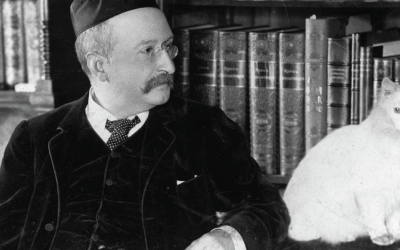John Corvino argues that the claim "That's just your opinion" is pernicious and should be consigned to the flames.
When debating ethics and other controversial topics, one frequently hears the claim “That’s just your opinion.” It is a pernicious claim, devoid of clear meaning, and it should be consigned to the flames – or so I shall argue here.
In calling something an opinion, one presumably wants to contrast it with something that is not an opinion, and the obvious candidate for the contrast class is “fact”. Philosophers might be tempted to draw this contrast by identifying facts as states of affairs – occurrences that are there in the world regardless of what anyone may think about them – and identifying opinions as beliefs (or some other mental state) about states of affairs. According to this approach, we can separate facts from opinions by using what Perry Weddle has called the “Whose?” test: It always makes sense to ask “Whose opinion is it?” but never “Whose fact is it?”
But this way of drawing the contrast merely pushes the problem back further. For among the beliefs that people have about the world, there are some that people tend to put in the “fact” column and some that they tend to put in the “opinion” column. That is, they contrast factual beliefs from opinions (opinion beliefs), and it is quite appropriate to ask “Whose belief?” in either case. The same goes for expressions of belief: We can talk about statements of fact vs. statements of opinion, or factual claims vs. opinion claims, and so forth, and all of these are in the mouths of subjects.
Suppose, then, we narrow our inquiry to statements, so that when we ask, “What is the difference between facts and opinions?” what we’re really asking is “What is the difference between statements of fact and statements of opinion?”
This seems like it should be an easy question, but it actually tends to stump most people on the street. Mind you, they have no trouble in offering examples of either, or in categorising others’ examples. So for instance, given
| (1a) There is beer in my refrigerator. | (1b) Wine tastes better than beer. |
| (2a) The earth revolves around the sun. | (2b) The earth was created by an omnipotent God. |
| (3a) Thousands were killed in Darfur. | (3b) Genocide is wrong. |
| (4a) The current US president is a Democrat. | (4b) A Democrat will win the presidency in 2016. |
they’ll say that the A statements are facts and the B statements are opinions. When asked to explain the principle of distinction between the two, however – the rule that tells us how to assign statements to one category or the other – they often get tongue-tied.
Some have tried to explain the distinction to me by arguing that facts are true. This answer is not at all helpful, since opinions are typically put forth as true, and some factual claims turn out to be false. For example, most people would say that it’s true that genocide is wrong, and there may or may not be beer in my refrigerator. The fact/opinion distinction varies independently of the true/false distinction.
Others say that factual statements are “concrete” rather than “abstract”, but that answer would render all mathematical statements non-factual, since mathematics involves abstract concepts (e.g. numbers). Neither does it help, at least at first glance, to say that facts are “objective” (rather than “subjective”), since at least some statements in the “opinion” column involve matters that would be true (or false) regardless of what any particular subject believes. For example, whether or not God created the earth is an objective matter, albeit a controversial and difficult-to-prove one. If it happened, it happened whether anyone believes it or not. Ditto if it didn’t happen. (I’ll say more about the subjective/objective distinction later on.)
Perhaps the last example suggests a better answer: the difference between facts and opinions is that factual statements are uncontroversial. But this answer doesn’t seem right either, since it would make it audience-relative whether something is a fact: for example, “the earth revolves around the sun” would be a fact for modern Europeans but not for medieval ones; “God created the earth” would be a fact for believers but not for sceptics; “The earth is flat” would be a fact for Flat-Earthers but not for the rest of us. How useful would the fact/opinion distinction be if any statement could count as either one, depending on who hears it?
If everyday observers are confused about the distinction, “experts” fare little better. Curious as to the standard explanation, I Googled “facts vs. opinions”. (This is not how to conduct serious philosophical research, but it can be a useful way of gauging common thoughts on a subject.) Here’s the first result I received, from a “Critical Thinking Across the Curriculum Project” website:
“Fact: statement of actuality or occurrence. A fact is based on direct evidence, actual experience, or observation.
“Opinion: statement of belief or feeling. It shows one’s feelings about a subject. Solid opinions, while based on facts, are someone’s views on a subject and not facts themselves.”
This way of drawing the distinction makes “The earth revolves around the sun” an opinion – or at least, not a fact – since no one directly observes it happening (not even astronauts!). It also jumbles together occurrences (what we earlier called “states of affairs”), statements about occurrences, and the evidence for those statements.
Perhaps more confusing is its labelling opinions as “statement(s) of belief.” As we’ve been using the terms, all statements express beliefs, and our task is to determine which of them express factual beliefs and which express opinions.
So I looked further. Here are the second and third results from my quick internet search, from an “Education Oasis” and “Enchanted Learning” website, respectively:
“A fact is a statement that can be proven true.”
“An opinion expresses someone’s belief, feeling, view, idea, or judgment about something or someone.”
and
“Facts are statements that can be shown to be true or can be proved, or something that really happened. You can look up facts in an encyclopedia or other reference, or see them for yourself. For example, it is a fact that broccoli is good for you (you can look this up in books about healthy diets).
“Opinions express how a person feels about something – opinions do not have to be based upon logical reasoning. For example, it is an opinion that broccoli tastes good (or bad).”
Both of these connect fact with provability. But in common parlance, “provability” seems audience-relative as well: While one person might find Anselm’s ontological argument to be a sufficient proof for God’s existence (thus rendering “God exists” a fact for that person); others may not.
The Education Oasis site announces that “An opinion expresses someone’s belief ... about something.” So if I believe that there’s beer in my refrigerator, is that just an opinion? The Enchanted Learning site muddies the waters even further by claiming that you can look up facts in an encyclopaedia (always? but then were there no facts before books?), and by including an evaluative notion (“good for you”) among examples of facts.
If this is “Critical Thinking”, I’d hate to see what Sloppy Thinking looks like.
Let me offer a conjecture: the fact/opinion distinction is ambiguous, and in trying to explain it, people typically conflate it with other distinctions in the neighbourhood.
Let’s consider three of those other distinctions. Take, first, the familiar philosophical distinction between belief and reality. In common understanding, there’s a world (reality), and then there are our representations of that world (beliefs: sometimes true, sometimes not). I might believe that there’s beer in the refrigerator, whether or not there’s any there. I might believe that God created the earth, whether or not God did – indeed, whether or not God exists at all. Generally, we strive to make our beliefs as accurate as possible in representing reality, but that doesn’t remove the gap (some would say “gulf”) between the two.
The problem, obviously, is that attempts to bridge that gap always proceed via our own fallible cognitive capacities. Beliefs about reality are still beliefs, and some of them, despite our best efforts, turn out to be false. That’s true whether we’re talking about beliefs that usually show up in the “fact” column (“There’s beer in the refrigerator”) or in the “opinion” column (“God created the earth”). In other words, both facts and opinions can be either successful or unsuccessful in representing reality, and thus the fact/opinion distinction is not the same as the belief/reality distinction.
Second, consider the subjective/objective distinction. Something is subjective insofar as it is mind-dependent, objective insofar as it is mind-independent. Given this definition, all beliefs (qua beliefs) are subjective, because beliefs depend on minds. And since we’ve been treating both facts and opinions as statements of belief, facts and opinions are similarly subjective: In other words, we can always ask “Whose belief?” or “Whose statement?”
Of course, there are different kinds of beliefs and statements. Some are about objective matters, such as whether there is beer in the refrigerator. Others are about subjective matters, such as whether one would enjoy a Guinness more than a Corona. Perhaps the fact/opinion distinction tracks the distinction between statements with objective content (facts?) and those with subjective content (opinions?). But if so, we would need to revise what usually gets put in each column. In particular, the statement that “God created the earth” will need to move over to the “fact” column, since whether God created the earth is an objective matter – it happened (or not) independently of whether we believe it happened. The same is true for “God exists” – not an opinion, on this schema, but a factual claim (maybe true, maybe false).
It is also by no means obvious that “Genocide is wrong” should remain in the “opinion” column. While some philosophers hold that moral beliefs are subjective, many do not. Moreover, there is a strong commonsense intuition that genocide would be wrong whether anyone believes it’s wrong, suggesting that the claim is objective, not subjective. So while the subjective/objective distinction might be useful in explaining the fact/opinion distinction, adopting this approach would require us to revise our common thinking about facts and opinions. That’s not necessarily a bad thing, since – as we have seen – our common thinking about facts and opinions appears rather confused.
Finally, consider the descriptive/normative distinction. Descriptive statements describe or represent the world; normative statements evaluate it. For example: the statement that thousands were killed in Darfur is descriptive; the statement that such killing was wrong is normative.
The descriptive/normative distinction is sometimes called the fact/value distinction, which might lead it to be confused with the fact/opinion distinction. But it’s controversial whether all normative claims are matters of opinion. Moreover, many of the standard “opinion” examples are not normative: consider “God exists” or “A Democrat will win the presidency in 2016”. If the fact/opinion distinction were identical to the fact/value distinction, then once again we would need to revise our common thinking about facts and opinions.
Having teased apart these various distinctions, and looking back over the several attempts to explain the difference between fact and opinion, we might propose the following definitions:
o A statement of fact is one that has objective content and is well-supported by the available evidence.
o A statement of opinion is one whose content is either subjective or else not well supported by the available evidence.
These definitions have several advantages. First, they capture some of the concerns that lead people to insist on the fact/opinion distinction in the first place – in particular, the concern that claims not be accepted without good evidence. Second, they explain why some objective matters – in particular, controversial matters such God’s existence or predictions about the future – get placed in the category of opinion, despite their objective content. And third, they avoid the sloppiness of some of the earlier proposals. That said, they are still somewhat revisionist: They do not fully capture everyday usage (since everyday usage is messy and confused), but instead serve to refine that usage.
Why worry about the fact/opinion distinction? One reason is that precise thinking is valuable for its own sake. But there’s another, more pragmatic reason. Despite its unclear meaning, the claim “That’s just your opinion” has a clear use: It is a conversation-stopper. It’s a way of diminishing a claim, reducing it to a mere matter of taste which lies beyond dispute. (De gustibus non est disputandum: there’s no disputing taste.)
Indeed, the “opinion” label is used not only to belittle others’ stances, but also to deflate one’s own. In recognising that a personal belief differs sharply from that of other individuals and cultures, one may conclude, “I guess that’s just my opinion – no better than anyone else’s.” This conclusion may stem from an admirable humility. On the other hand, it can have pernicious effects: it leads to a kind of wishy-washiness, wherein one refrains from standing up for one’s convictions for fear of imposing “mere opinions”. Such reticence conflicts with common sense: surely some opinions are more thoughtful, more informed, more coherent, and more important than others.
This diminishment is especially troubling in moral debates. Moral debates are practical – they’re debates about what to do – and they concern our values: things that matter to us. Either we send troops to Syria or we don’t. Either we allow same-sex couples to marry or we don’t. Either we lie to our parents about what happened to the car or we don’t. Categorising these issues as “matters of opinion” doesn’t make them any less urgent or vital.
I therefore propose that we abandon the ambiguous fact/opinion distinction, and especially the dismissive retort “That’s just your opinion.” We should focus instead on whether people can offer good reasons for the claims they make – reasons that might compel us to share their views. That’s my opinion, anyway. If you think yours is better, don’t merely say so: Say why.
John Corvino is Chair of the Philosophy Department at Wayne State University, the author of What's Wrong With Homosexuality?, and the co-author (with Maggie Gallagher) or Debating Same-Sex Marriage. Read more at www.johncorvino.com.
You might also like...















